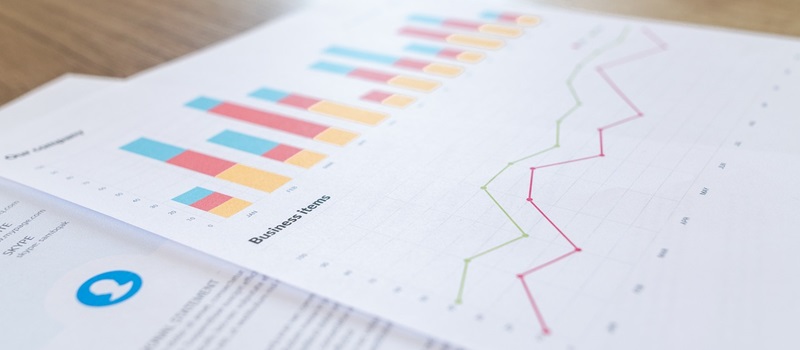In the era of digital transformation, the role of people analytics professionals has gained unprecedented importance. The convergence of artificial intelligence (AI) and human resources (HR) has set the stage for a paradigm shift, enabling these professionals to revolutionize HR practices and transform the workplace. This article delves into the potential of generative AI in empowering people analytics professionals and explores how they can turn HR from a mere cost center into a profit center.
Turning HR into a Profit Center
Traditionally, HR departments have been seen as cost centers focused on administrative tasks. People analytics seeks to change this perspective by harnessing an organization’s human capital to drive profitability. By leveraging HR data and analytics, professionals in this field can identify strategic opportunities, optimize workforce efficiency, and make data-driven decisions that contribute directly to the organization’s bottom line. By aligning HR practices with business goals, people analytics professionals are reshaping traditional HR roles and redefining its purpose.
ITransitioning to Decision Makers
In addition to providing useful information, people analytics professionals are now transitioning into becoming decision makers themselves. With their expertise in data analysis, statistical modeling, and predictive analytics, they are well-positioned to actively participate in decision-making processes. By collaborating with other key stakeholders, these professionals can provide valuable insights, recommend actionable strategies, and influence organizational outcomes. This shift enables HR to play a more strategic role in shaping the future direction of the company.
The Continued Importance of Human Skills
While AI and people analytics have the potential to automate and optimize various HR processes, human skills remain crucial. In fact, the importance of these skills only grows as AI becomes more prevalent. Empathy, emotional intelligence, communication, and critical thinking are indispensable in fostering employee engagement, cultivating workplace culture, and resolving complex human issues. While AI can handle technical aspects, human skills are essential for building trust, nurturing relationships, and ensuring ethical considerations are taken into account.
AI Disruption in Digital Transformation
The advent of AI has revolutionized HR practices, particularly in digital transformation 3.0. By leveraging AI technologies, HR departments can automate routine tasks such as resume screening, employee onboarding, and performance evaluations. AI-driven platforms can analyze vast amounts of data in real-time, enabling accurate predictions and efficient decision-making. As a result, HR professionals can focus on strategic initiatives, employee development, and enhancing the overall employee experience.
The Need for Better Consultation and Influence
With AI assuming the technical aspects of HR operations, the onus is on people analytics professionals to enhance their consultation, influence, decision-making, and action-taking skills. Adapting to the changing landscape, these professionals must proactively engage with stakeholders at all levels of the organization. By effectively communicating the insights gleaned from AI-powered analytics, they can shape organizational change, drive business strategies, and influence key decisions. By blending technical expertise with strong interpersonal skills, people analytics professionals can truly make a lasting impact on the workplace.
Challenges and Pushback in Adoption
As with any disruption, the adoption of AI and people analytics may face challenges and pushback. Resistance to change, fear of job displacement, and concerns about privacy and bias are common hurdles. However, organizations and HR professionals must address these concerns head-on by fostering a culture of transparency, providing training and support, and ensuring ethical AI practices. By addressing these challenges, the potential benefits of AI in HR can be fully realized.
Lowering Barriers to Entry for AI
To drive widespread adoption, AI must overcome barriers to entry and be accessible to all. This includes simplifying the process of AI implementation and integration, making AI tools user-friendly, and providing resources for training and upskilling HR professionals. By lowering these barriers, organizations can empower HR teams of all sizes to effectively leverage AI tools and technologies, democratizing access to the benefits of AI-driven people analytics.
AI’s Positive Impact on HR and Employee Experience
Fundamentally, AI has the potential to enhance HR practices, leading to improved employee experiences. With AI taking care of repetitive and administrative tasks, HR professionals can focus on strategic initiatives, employee development, and creating a positive work environment. By leveraging AI-generated insights, HR departments can personalize employee experiences, drive talent retention, and identify areas for growth and improvement. Ultimately, AI in HR enables organizations to foster a more engaged, satisfied, and empowered workforce.
The role of people analytics professionals, powered by AI, is redefining the HR landscape. By leveraging the power of generative AI, these professionals are turning HR into a profit center, transitioning from being information providers to decision makers, and augmenting their human skills to drive organizational success. Although challenges and pushback may arise, organizations that embrace AI and people analytics will be better positioned to navigate the ever-evolving workplace dynamics. As AI continues to advance, HR will witness remarkable transformations, ultimately leading to enhanced employee experiences and improved organizational outcomes.

